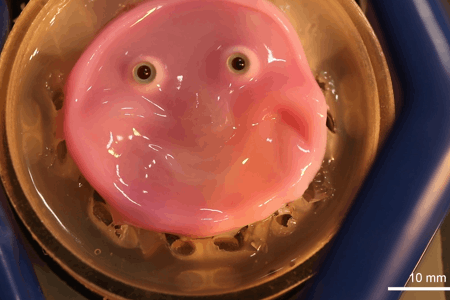Robots with human skin.
In a breakthrough that isn’t at all creepy, scientists have devised a method of anchoring living human skin to robots’ faces. The technology could actually have some valuable applications, beyond making Westworld-like scenarios a reality.
Two years ago, Prof. Shoji Takeuchi and colleagues at the University of Tokyo successfully covered a motorized robotic finger with a bioengineered skin made from live human cells.
It was hoped that this proof-of-concept exercise might pave the way not only for more lifelike android-type robots, but also for bots with self-healing, touch-sensitive coverings. The technology could additionally be used in the testing of cosmetics, and the training of plastic surgeons.








